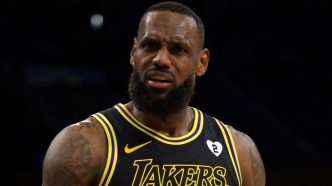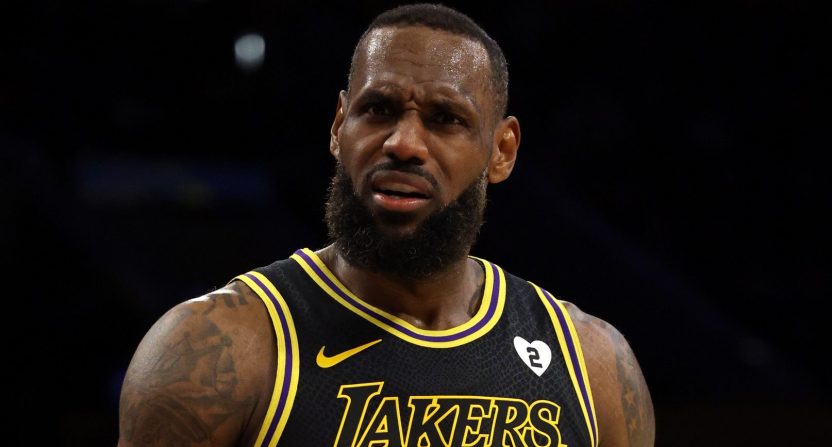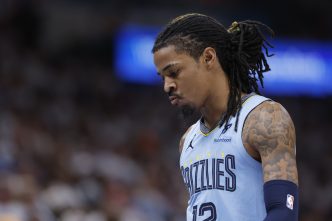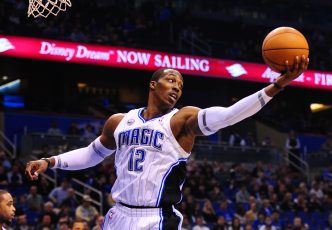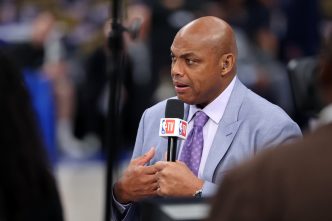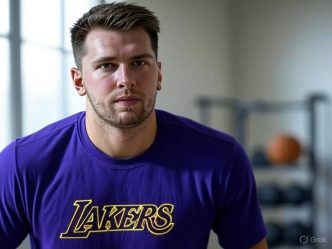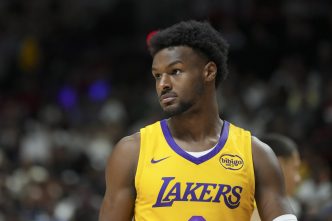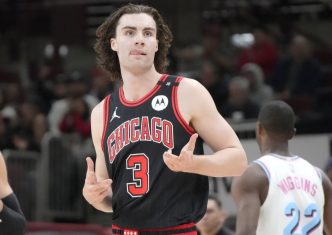When the stakes are this high, every single possession counts. The tension in the air during playoff games is palpable, particularly when the atmosphere is charged with a roaring crowd, like the one we saw at the Timberwolves’ home arena. For the Los Angeles Lakers, the intensity of the moment demands not just excellence but extraordinary performances from their leaders, especially someone of LeBron James’ caliber.
In their recent matchup against Minnesota, the Lakers found themselves with a comfortable seven-point lead as the clock wound down—but instead of sealing the deal, they crumbled under pressure. Falling 116-113 marked a pivotal moment in this series, handing the Timberwolves a commanding 3-1 lead. This is not just a series loss on the line; it’s a significant chapter in the ever-evolving narrative of LeBron’s career—and his claim to being recognized as the G.O.A.T.
LeBron was joined in the starting lineup by a mix of talented players, including Luka Doncic and Austin Reaves. However, they couldn’t maintain the momentum. The Lakers had the opportunity to put the game away but instead allowed the Timberwolves to regain control, making their path to victory increasingly murky. Lakers head coach JJ Redick’s decision to stick with his key players in a crucial stretch is a classic coaching move but one that ultimately didn’t pay off this time.
For a player who has consistently been the face of the franchise and a leading force on the court, this raises an important question: If LeBron and the Lakers bow out of this series, how does that impact his legacy? For a guy who’s been in the league for 22 seasons, experiences like these should resonate. The ability to capitalize on crucial moments is what separates good players from great ones.
LeBron did have his impactful moments—whether it was stripping Anthony Edwards or successfully defending against Minnesota’s final offensive push. However, in the tight moments when it mattered most, he and his teammates faltered. Miscommunications, missed shots, and even simple execution errors culminated in a scenario that saw a promising lead slip away. Are these signs of fatigue, or are they indicative of a player who may not be at the peak of his powers anymore?
Consider the final 30 seconds when James failed to connect with Doncic on an inbounds play that could have shifted the momentum back in the Lakers’ favor. Sure, there’s debate surrounding whether James’ experience might have played a role in that miscue. But familiarity doesn’t always guarantee success; it also leads to expectations.
Every great player faces pressures, but legends rise in moments of adversity. For LeBron, the test is straightforward: can he rally his team from a 3-1 deficit, or will this series mark a significant blemish on an otherwise stellar career? The argument for his standing as the greatest player of all-time hinges not just on the accolades, but on notching those iconic playoff moments when it counts.
With the potential of the season coming to an end looming large, one cannot help but ponder how a loss in this series would frame perceptions of LeBron’s greatness. The narrative is ripe for analysis, and if the Lakers fall short here, you can bet that fans and analysts alike will scrutinize what it means for LeBron’s legacy. Would this be another chapter in the book of “what could have been”?
If the Lakers are to turn this series around, it will require more than just talent; they will need a sheer will to overcome adversity and a reminder of what it means to play with urgency. For LeBron, the spotlight shines brighter than ever. Winning this series could solidify his claim to the throne, while a loss could paint an entirely different picture. The pressure is on; the time for greatness is now.

